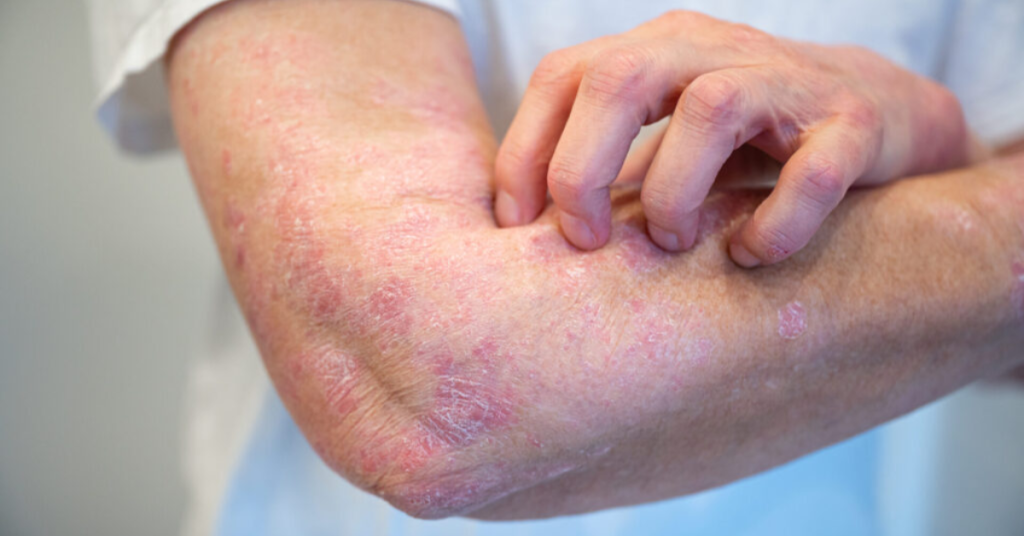Typically, an allergic reaction will cause symptoms that affect your nose, sinuses, throat, lungs, skin, or the lining of the stomach. People with allergies may sneeze or will have an itchy or runny nose. The roof of the mouth can also feel itchy, and eyes can become red, watery, and swollen.
The most severe type of reaction is called anaphylaxis, and it can become a life-threatening medical emergency. Visit our Manhattan primary care center or call your local general practitioner in NYC if you experience anaphylaxis allergic reaction.
Symptoms of Anaphylaxis
Symptoms of anaphylaxis include nausea and vomiting, a fall in blood pressure; the person may feel lightheaded and will have a rapid, weak pulse. They could be severely short of breath and can lose consciousness.
Seasonal Allergies
Seasonal allergies like hay fever can cause sneezing, an itchy and runny stuffy nose, watery red eyes, and the roof of the mouth may itch. Hay fever is also called allergic rhinitis.
Food Allergies
Food allergies can cause the mouth to tingle, and the lips, face, throat, or tongue may swell. Some people can develop hives or anaphylaxis.
Insect Sting Allergies
Insect allergies can cause a large swelling called edema at the sting site. The person may feel itchy or will develop hives all over the body. They may cough or wheeze, their chest may feel tight, or they could have a shortness of breath. Insect stings can also cause anaphylaxis.
Drug Allergies
Drug allergies can cause hives, a rash, anaphylaxis, itchy skin, and facial swelling, and the person may begin to wheeze.
Most common allergens responsible for causing these reactions may include:
- Latex
- Pollen
- Insect stings
- Medication
- Food
- Dust
- Mould
Allergy Testing and Diagnosis
If you suspect you have an allergy, it’s worth seeing your local physician or visit our clinic and find the best doctors in NYC experienced in treating allergies and who can perform a physical examination and provide the appropriate tests. Before you see the doctor, keep a detailed diary of symptoms, and list any possible triggers. If you have a food allergy, keep a detailed record of the foods eaten and which could be prompting the allergic reaction. Make a list of your family history of allergies and any medications currently used, including vitamins and other supplements.
Allergy tests include a skin test where the doctor will prick your skin to expose you to minute amounts of the proteins found in potential allergens. You will most likely develop a hive or raised bump if you are allergic to a specific allergen. A blood test can measure the amount of allergy-causing antibodies in your blood, called immunoglobulin E antibodies.
Allergy Treatment
The allergy treatment prescribed by your doctor will depend on the allergy and the symptoms produced.
Drug Allergy Treatment
Medications may help to reduce the reaction of your immune system to allergens, easing symptoms. Drug allergy treatment includes over the counter or prescription medication and can be in the form of nasal sprays, eye drops, pills, or liquid.
Immunotherapy
Immunotherapy can treat severe allergies that will not respond easily to other treatments. Usually, immunotherapy involves administering purified allergen extracts as a series of injections, often over several years. Sublingual immunotherapy is given in the form of a tablet placed under the tongue until it dissolves and can be useful in treating some pollen allergies.
Emergency Epinephrine
Severe allergies are treated with emergency epinephrine. If you have a severe allergy that could trigger anaphylaxis, you may need to carry an EpiPen or emergency epinephrine shot with you all the time. Emergency epinephrine will reduce the symptoms until you can get emergency medical treatment.
Allergen Avoidance
Usually, one of the most effective treatments is allergen avoidance, and this can be especially useful for seasonal allergies treatments. For example, if you are allergic to pollen, make sure you keep the windows and doors closed when the pollen count is high. An allergy to dust mites can be helped by vacuuming and washing your bedding frequently.
Once your allergy doctor has identified the allergen, you can try to avoid allergy triggers, preventing allergic reactions, and reducing your symptoms. If you have a severe allergic reaction, consider wearing a medical alert necklace or bracelet, in case you are unable to communicate the emergency to others.
One effective seasonal allergy treatment is to use saline nasal irrigation, such as a neti pot that will rinse out the sinuses with a salt and water solution. This helps to remove irritants and thickened mucus from your nose but must be used correctly as otherwise, it can cause infection.



